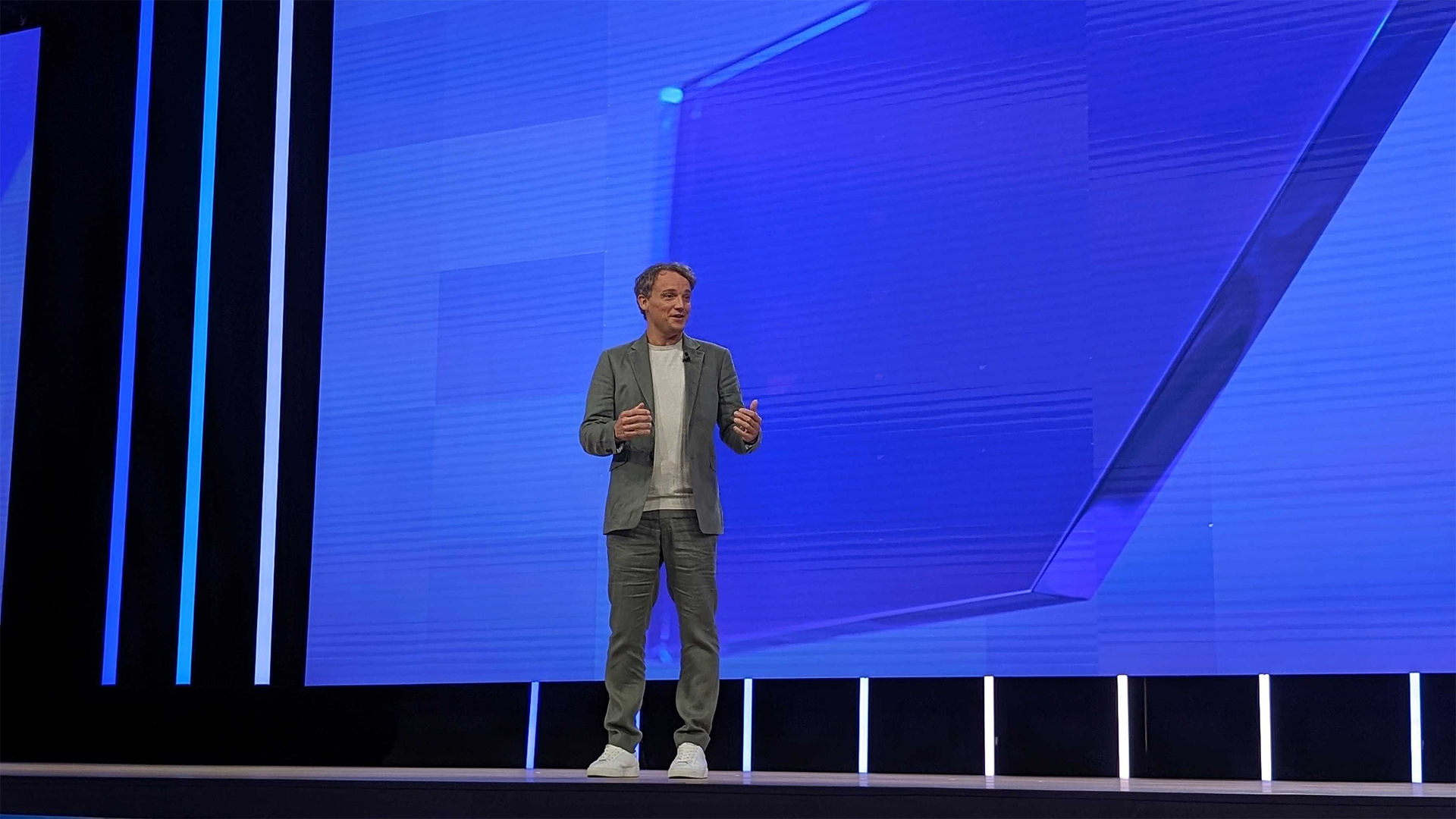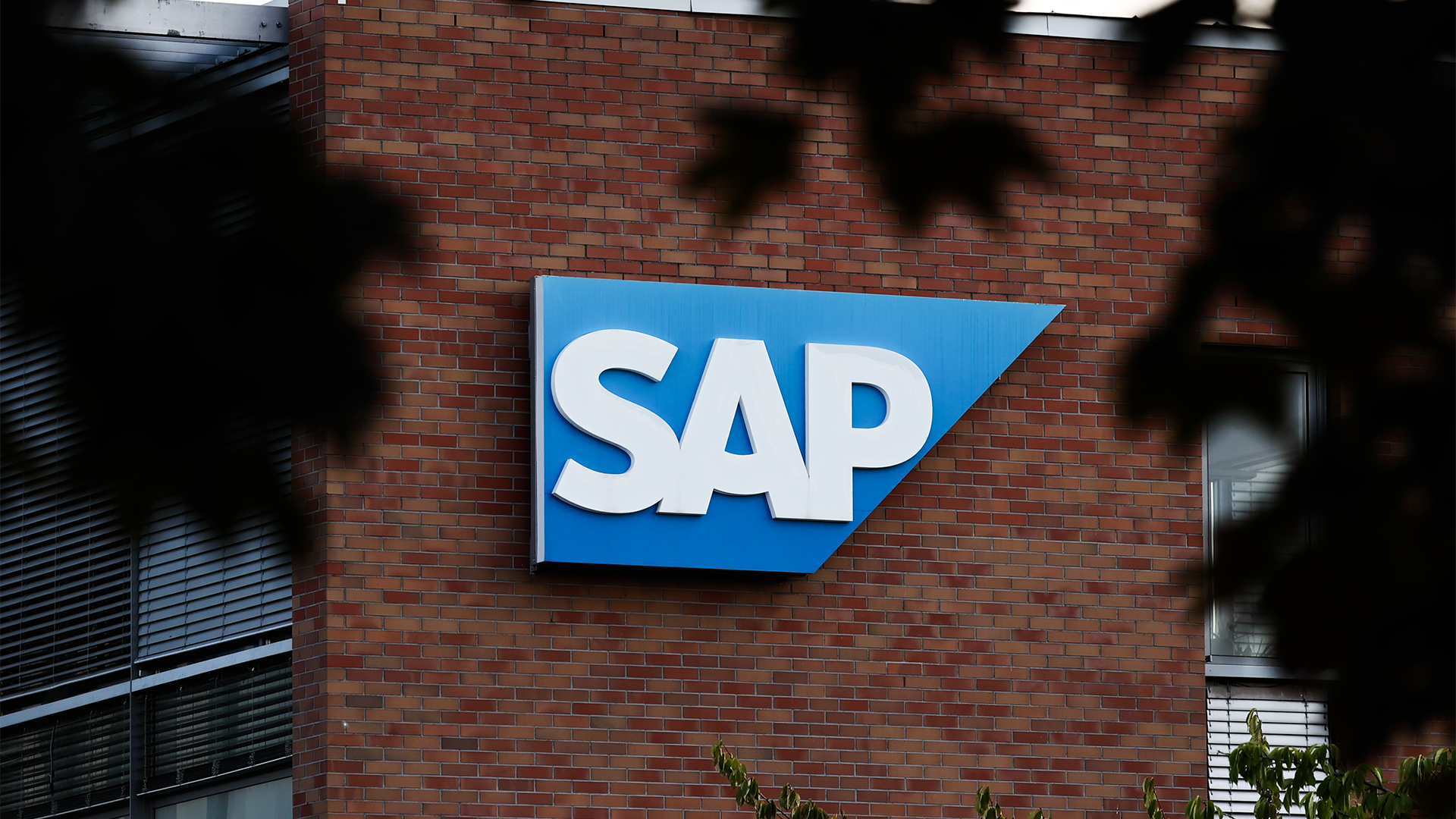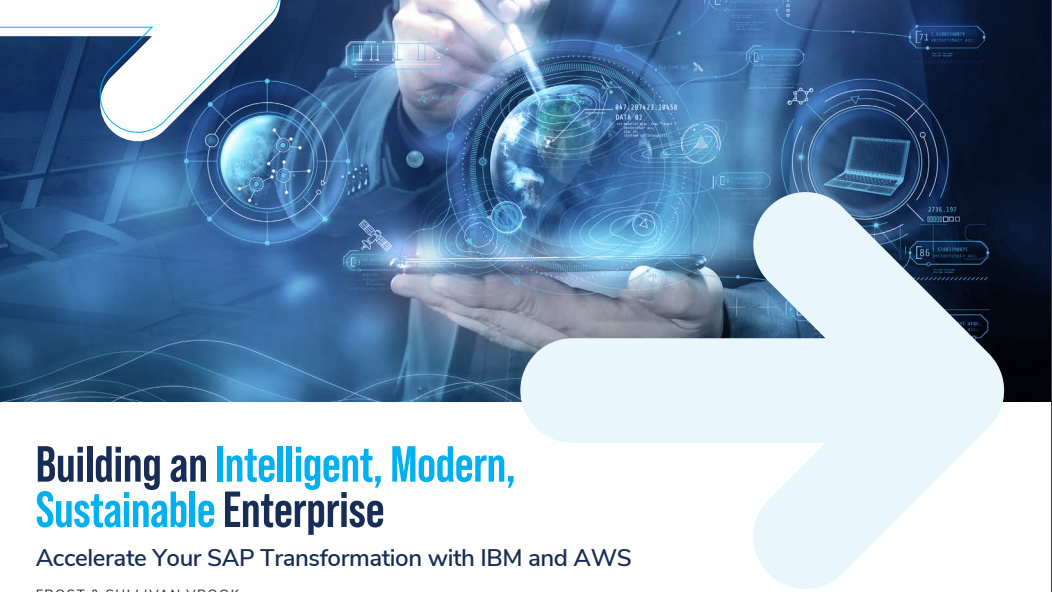What differentiates SAP's generative AI from all the rest? The quality of its data
SAP chief exec Christian Klein talks up opportunities in Europe and the importance of cloud systems for AI


A long summer of elections, sporting events, and multiple conflicts happening all at once may change Europe beyond recognition. However, 2024 is still likely to be remembered for the relentless expanse of generative AI – the year of the Copilot, if you will.
Companies across Europe are keen to tap into the potential of generative AI and every tech company wants to capitalize on that, which has created a busy market.
Copilots are coming out thick and fast, automated guides are populating every day platforms, and a new level of automation is now at our disposal. The challenge, it seems, is fast becoming about differentiation – essentially, why should we care about your AI solution?
For a company like SAP, with its dedicated focus on B2B, customer data is the key selling point. Unlike ChatGPT, or Microsoft Copilot, which takes data from the web or the general public, SAP takes data from the companies that use its services.
Joule, for example, SAP’s generative AI platform, has “access to the broadest B2B data model in the tech industry,” CEO Christian Klein said at SAP Sapphire in Barcelona. With this data, Klein stated that Joule would enable 20% more productivity and higher quality of performance and said that Joule was ready for “prime time”.
“There is no need, like other tech companies, to build an AI use case and manually integrate it into a business process,” Klein told journalists at the Roca Gallery in Barcelona.
“One in 80% of the world’s transactions are somehow processed by an SAP system – so guess what? We can embed the AI, the intelligence, right into the business process. So no customer needs to do anything custom, to apply AI because we embedded it in our solutions and the customers get the immediate benefit.”
Sign up today and you will receive a free copy of our Future Focus 2025 report - the leading guidance on AI, cybersecurity and other IT challenges as per 700+ senior executives
We can speculate here that Klein is maybe being a little critical of the wider market, or of companies that have added generative AI into existing systems with little benefit or improvement. Here, SAP seeks to differentiate itself as it wants to deliver “responsible AI”, particularly in Europe, where regulation is tight.
“We are super transparent with regard to the algorithms, super transparent how we store the data, we can manage it in Europe, we can locate it in Europe – everyone has the right to understand what is going on with their data,” Klein said. “And that is actually what differentiates SAP and we are the only kind of European tech company of that size.”
SAP sees challenges and opportunities in Europe
With Sapphire taking place in Orlando in the US the week before, most of SAP’s biggest announcements had already been reported and analyzed long before we reached Barcelona’s Fira Grand Via. But the German software giant was keen to stress the opportunities within Europe – though it is not without ‘challenges’, according to Klein.
“Europe has great opportunities,” Klein said. “When I look into Spain, France, into Italy, Germany, just look at the public sector. Look at the healthcare system. A lot is in the hands of the federal government and there is good access to data and we need the environment to collect data, to share data, to be the best in research, to be the best in patient care you have to apply the technology which is available today.”
“The point is, we are not a Union,” Klein said. “It is really important to have, in this sense, more European Union when it comes to digitization, especially the startups.
“SAP can deal with them but startups need a huge market to scale. They compete with startups from the US, from China, and it is all about the market size and the ability to scale fast, and of course to get financial funds. This is where we need to be more like the European Union.”
RELATED WEBINAR

Klein added that on the economic side, companies need to lean into new technologies, and stated that being in the cloud has a clear advantage, particularly for applying AI.
“That makes a whole lot of difference,” he said. ”For powerful AI, you need the cloud, you need digitization. Now there is always a new version, and it is hard to keep up with the pace of innovation, that’s why, four years back, we made the decision to move to the cloud and not because we liked the cloud so much, but because we see, for the customer, it is much better.”
There was a small admission here for the on-premise world, which Klein said was forced to wait for their upgrades, often waiting seven years for the next release. That puts them at a disadvantage, particularly in Europe which has always been overshadowed by competition in the US and China – European customers, Klein said, cannot wait seven years to consume new innovation.
“We are not talking about this because it is a nice to have, in my eyes it is essential to increase the speed of innovation to compete in the highly competitive market that is out there,” he said.
Bobby Hellard is ITPro's Reviews Editor and has worked on CloudPro and ChannelPro since 2018. In his time at ITPro, Bobby has covered stories for all the major technology companies, such as Apple, Microsoft, Amazon and Facebook, and regularly attends industry-leading events such as AWS Re:Invent and Google Cloud Next.
Bobby mainly covers hardware reviews, but you will also recognize him as the face of many of our video reviews of laptops and smartphones.
-
 What is Microsoft Maia?
What is Microsoft Maia?Explainer Microsoft's in-house chip is planned to a core aspect of Microsoft Copilot and future Azure AI offerings
-
 If Satya Nadella wants us to take AI seriously, let’s forget about mass adoption and start with a return on investment for those already using it
If Satya Nadella wants us to take AI seriously, let’s forget about mass adoption and start with a return on investment for those already using itOpinion If Satya Nadella wants us to take AI seriously, let's start with ROI for businesses
-
 SAP wants to take data sovereignty to the next level with new 'on-site' infrastructure options
SAP wants to take data sovereignty to the next level with new 'on-site' infrastructure optionsNews The cloud computing giant will allow customers to host SAP-managed infrastructure directly within their own facilities
-
 SAP launches sovereign cloud service for UK customers
SAP launches sovereign cloud service for UK customersNews The move makes SAP the latest to roll out a sovereign cloud service for UK customers
-
 UiPath and SAP team up to streamline cloud migrations
UiPath and SAP team up to streamline cloud migrationsNews The UiPath Platform is being integrated into SAP’s Build Process Automation and packaged as a new SAP Solution Extension
-
 SAP wants you in the cloud and generative AI is how it will lure you there
SAP wants you in the cloud and generative AI is how it will lure you thereAnalysis SAP is “trying hard” to take all of its customers on a digital transformation journey, but says there is only one destiny – the cloud
-
 Building an intelligent, modern, sustainable enterprise
Building an intelligent, modern, sustainable enterpriseWhitepaper Accelerate your SAP transformation with IBM and AWS
-
 Mercedes F1 accelerates AI adoption in off-track IT transformation project
Mercedes F1 accelerates AI adoption in off-track IT transformation projectNews Mercedes F1 looks to optimize back-end operations to match the performance of its race teams
-
 Why Vistaprint migrated from on-prem to SAP S/4HANA
Why Vistaprint migrated from on-prem to SAP S/4HANACase Study Vistaprint, a provider of marketing products for more than 20 years, decided to migrate to transform its business operations
-
 The SAP integration planner's guidebook
The SAP integration planner's guidebookwhitepaper Download this eBook and connect SAP to your third-party systems and data to SAP with Boomi's cloud-based digital platform
